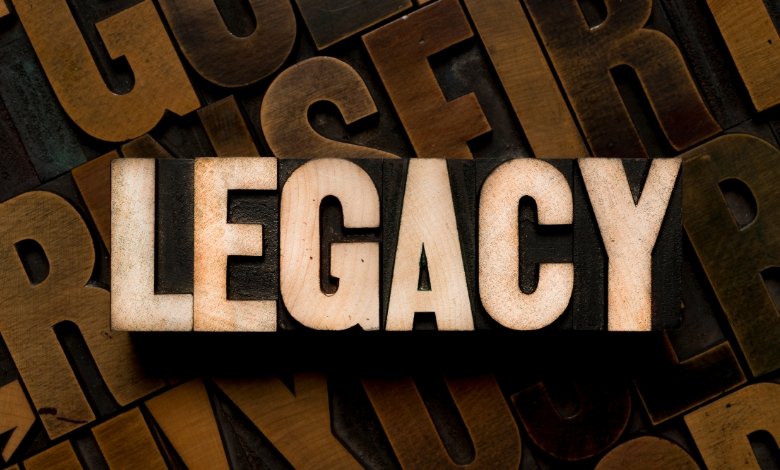Discover 6 prestigious HBCU law schools offering top-tier legal education, supportive communities, and career opportunities.
Choosing the right law school is one of the most important decisions you will ever have to make. If you’re contemplating Historically Black Colleges and Universities for your legal studies, then you are on the right course. HBCU law schools present a mixture of tradition, academic excellence, and community that places you on the right path toward success in the legal world. But it’s about more than earning a degree; it’s finding a school that feels a deep connection with your values, culture, and career aspirations.
I remember when I was considering law school. Like you, I wanted a place that not only had academic rigor but also felt like home. A place where I could connect with people who understood my background and where I could contribute to a vibrant, supportive community. HBCU law schools offer exactly that—plus, they’re known for producing successful, driven lawyers who go on to make a real difference in their fields and communities.
So, if you’re asking yourself, “Which HBCU should I choose for law school?” or “What are the best HBCU law schools?”, you’ve come to the right place. In this article, we consider six prestigious HBCU law schools which ensure quality programs for aspiring lawyers just like yourself.
Table of Contents
Find the Best Opportunities in an HBCU Law School

The best HBCU law schools are the ones dedicated not only to academic pursuits but also to nurturing a mission of supporting and uplifting underrepresented communities. The best HBCU law schools prepare students to be future leaders, supported by advocates and change-makers.
1. Howard University School of Law (Washington, D.C.)
When you think of prestigious HBCU law schools, Howard University School of Law probably is one of the main ones popping into your mind. Founded in 1869, it is not only one of the oldest black law schools in the country but also one of the most influential.
Howard University is known for creating some of the most legendary legal giants in the history of civil rights, including the first African American Supreme Court Justice, Thurgood Marshall. It is a powerhouse for any individual who is into social justice, civil rights, or public service.
Personally, I have always admired the legacy of Howard Law. The commitment of the school to address systemic inequalities was something that resonated with me; it’s a place where students are not just taught the law but encouraged to use it to make real change. Not to mention the incredible alumni network and career support that make Howard one of the top HBCU law schools for making an impact.
Why Howard Law?
2. North Carolina Central University School of Law-Durham, NC
If value for your money without sacrificing quality is your motto, then the North Carolina Central University School of Law should certainly be on top of your list. The law school has consistently been rated as one of the best law schools in North Carolina and focuses on making legal education accessible to every under-represented student.
The school offers everything, from a prominent Civil Litigation Clinic in which students can gain on-field experience while making a difference in the community to impressive technology-driven legal educations that keep students up-to-date on emerging trends in the legal landscape.
The fact that NCCU Law places such a strong emphasis on social justice and community service drew me in, and speaking to several graduates who have gone on to work in public interest law, they all rave about how prepared they felt upon graduation.
Why NCCU Law?
Best Law Schools in North Carolina for Aspiring Attorneys
Although NCCU Law is an exception, there could be a handful of another elite law schools in North Carolina that one needs to seek if one is an aspiring lawyer with determination in finding a school that best suits each of one’s goals, both professionally and personally. North Carolina has several elite institutions, but when it comes to diversity and inclusivity, NCCU Law is the notable exception.
Top HBCU Law Schools: Lighting the Path in Legal Education

3. Southern University Law Center (Baton Rouge, LA)
When one thinks of HBCUs with law schools, Southern University Law Center also comes to mind. It is one of the oldest law schools in Baton Rouge, Louisiana, with a great tradition of producing exceptional legal professionals for African American students.
What really sets the Southern University Law Center apart is that it really focuses on producing technically competent advocates who strongly believe in serving underserved communities. Through their Legal Clinics, students engage in real cases involving everything from family law to criminal defense.
One friend who attended Southern spoke of the closeness among the community and how the professors really had an investment in each student’s success. She also shared how the school’s practicality-based mentality prepared her for real success once she hit the ground running in the field of law.
Why Southern University Law Center?
4. Thurgood Marshall School of Law, Texas Southern University (Houston, TX)
Named after the legendary Supreme Court Justice, Thurgood Marshall, the law school at Texas Southern University is a top choice for students seeking to attend an HBCU with a notable name. Set in Houston, Texas, this law school has become distinguished in the number of attorneys it has produced who have proven to be equally as successful in the public arena as in private practice.
Texas Southern, in particular, has become a symbol of diversity and inclusion in its law school. Being one of the most diverse student bodies in the country, it is very rewarding to be able to do this in a community where individuals from all varied walks of life can excel.
I remember meeting a graduate of Thurgood Marshall School of Law, who once singled out this school’s mission statement, specifically training lawyers to be “advocates for justice,” as the great motivation that had led her to take this program. She thought this supportive culture at the school sustained her through the anybody-of-work of law school, and today she is an accomplished attorney working in corporate law.
Why Thurgood Marshall School of Law?
5. Florida A&M University College of Law (Orlando, FL)
Another great option for a top HBCU law school is Florida A&M University College of Law. FAMU College of Law, situated in Orlando, Florida, emphasizes access in the legal profession on behalf of individuals from historically underrepresented groups.
What remains unique about FAMU Law is its commitment to practical training; doing this in Orlando cements proximity to a thriving legal market, thus an array of opportunities for internships and jobs.
I visited Orlando some time ago and was amazed at just how alive that city was. The practical skills and community service emphasis within the school itself, coupled with the pulse of the city, make FAMU a perfect fit for wanting-to-hit-the-ground-running-by-graduation-type aspiring lawyers.
Why FAMU Law?
Best Law Schools for Black Students: A Comprehensive Guide
6. University of the District of Columbia David A. Clarke School of Law (Washington, D.C.)
Although not traditionally considered an HBCU, University of the District of Columbia (UDC) David A. Clarke School of Law has a mission closely aligned with those of historically black colleges’ law schools. UDC Law is deeply committed to public service, which draws many students to its mission of legal service delivery to underserved populations.
Clinical education is a major focus of the school; hence, each student will have to undertake a minimum of 700 hours of clinical work before graduation. This hands-on experience is invaluable and sets UDC Law apart.
Personally, I’ve been impressed by stories of UDC Law graduates who have gone on to practice public interest law, many for the kind of communities they have come from. This is a very good opportunity if your aim is to make your desired changes visible in people’s lives.
Why UDC Law?
Historically Black Colleges Law Schools: A Legacy of Excellence

HBCU law schools have long histories of excellence, which transcend academic achievement. Beyond academics, these schools excel at community, culture, and justice. They offer a supportive environment where you can thrive, both personally and professionally.
Whether you’re drawn to the legacy of Howard University, the community focus of Southern University Law Center, or the practical training at Florida A&M University, each of these law schools offers something unique. The best HBCU law schools provide not only a top-notch education but also the tools and support you need to make a real impact in the world.
FAQs
Q: How many HBCU law schools are there in the US?
There are six HBCU law schools in the United States, which include Howard University School of Law, North Carolina Central University School of Law, Southern University Law Center, Texas Southern University Thurgood Marshall School of Law, University of the District of Columbia David A. Clarke School of Law, and Florida A&M University College of Law.
Q. Why would someone want to go to an HBCU law school?
Going to an HBCU law school means a more nurturing environment to meet the needs of underrepresented students, smaller class sizes, and a high level of focus on social justice and community service. Many HBCU law schools offer relatively inexpensive tuition compared to those of others, along with significant financial aid packages. They also provide opportunities for networking with alumni who, in many cases, act as leaders in fields of law and politics, among other public services. Besides, HBCU law schools have had legacies of being great partners to civil rights advocacy, thus students have great choices of career focus on public interest or social justice.
Q. Which HBCU law schools are ABA-accredited?
The following HBCU law schools are accredited by the ABA:
These schools fulfill the criteria set by the ABA for legal education and accreditation, so effectively that all of its students can appear for the bar exams in their choice of US states.
Q. Are there online programs available at HBCU law schools?
These firms, each specializing in bankruptcy law in Orlando, are ready to help you navigate the complexities of your financial situation. Check with individual schools about their specific offerings because online legal education is a burgeoning area, particularly in L.L.M. programs and continuing legal education.
Conclusion: Which HBCU Law School is Right for You?
Attending an HBCU law school feels deeply personal, as it perfectly aligns with your unique interests, goals, and values. Moreover, it paves the way for your future in advocacy, public interest, or even legal entrepreneurship within the corporate world.
As you contemplate your decision, consider what is most important to you? Do you want a school that is very connected to its alumni, such as Howard? Or perhaps you are looking for an affordable institution, such as NCCU Law, to attend; maybe your impulse leans toward Southern University Law Center for its hands-on experience or Thurgood Marshall School of Law for its relatively supportive environment.
No matter what path you take, remember that you are not just choosing a law school; you are choosing to be part of a community that will be there throughout your journey.
Good Luck, and I hope you find that perfect HBCU law school to help you achieve your dreams!


